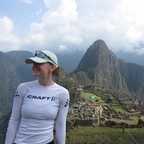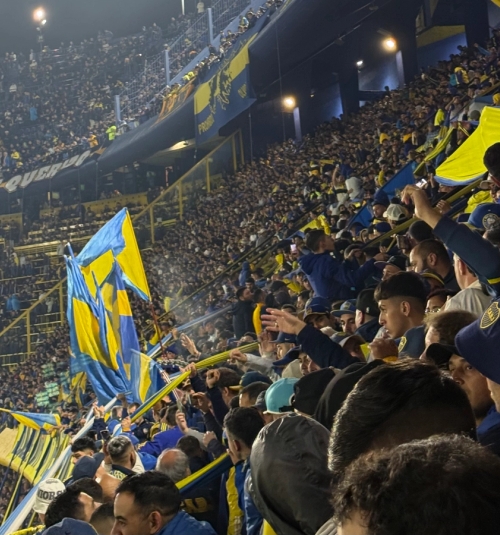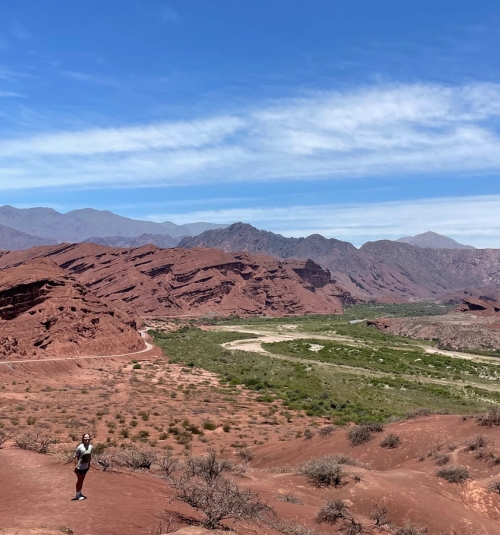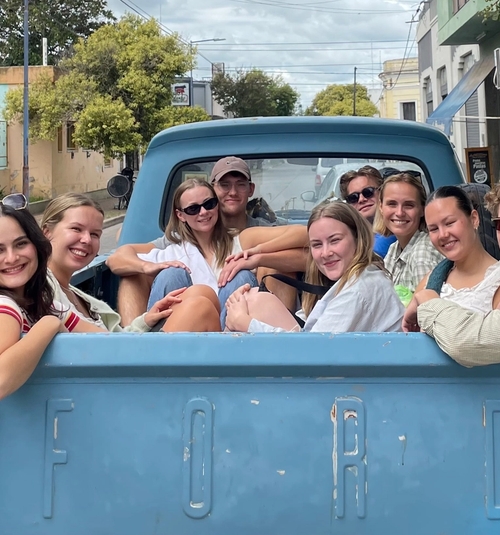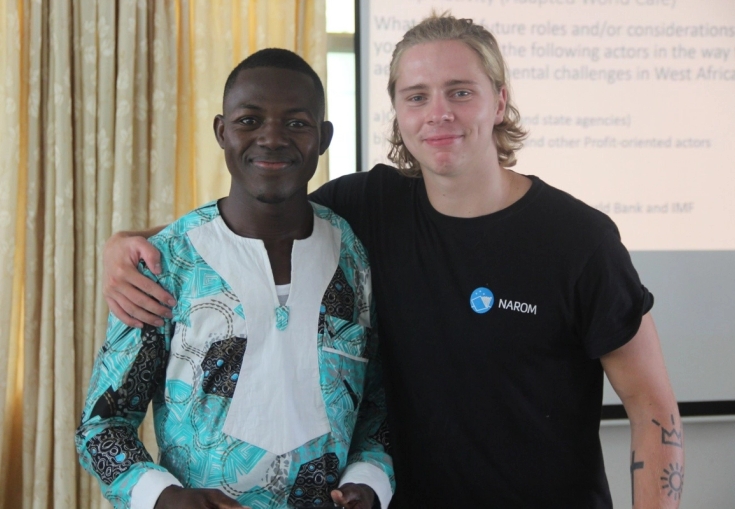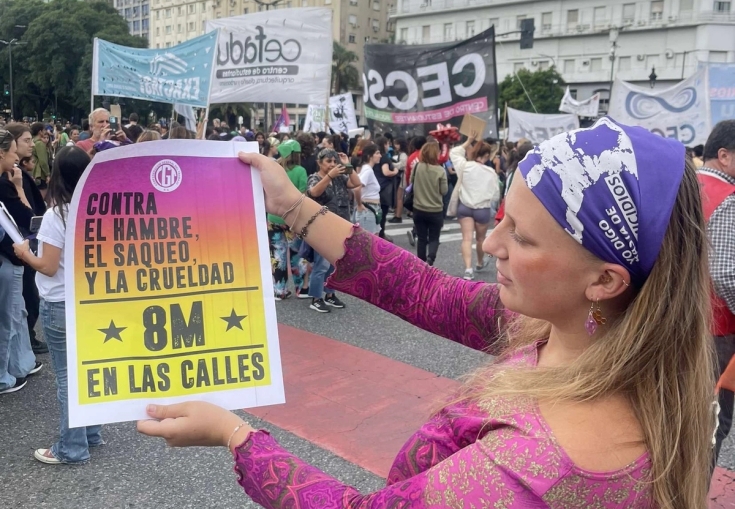
- Argentina
- Spanish in Argentina
- Spanish, philosophy and international politics in Argentina
- Introduction to Spanish in Argentina
International Women's Day in Buenos Aires
Saturday 8 March was International Women's Day, and it was celebrated!

This text is translated using AI.
View the original article here.The day started with a Women's Day breakfast with my roommates. A joint breakfast was also arranged at the student residence Milhouse, but since we live a bit away from the hostel, we concluded that it would be a bit stressful to go there in the morning.
After breakfast, we got on the bus and traveled to Milhouse to meet the others. Many had had a rather long night out on the town the day before and needed to relax after breakfast, but we were a small group that sat in the common area, drank mimosas, and talked.
Everyone was dressed up in purple (the color of Women's Day) and with glitter, so everyone looked very good.
As the clock approached 4 PM, we got ready to go out and watch the parade. It was supposed to go from the congress to Plaza de Mayo. Both are a 5-10 minute walk from Milhouse.
The parade hadn't started moving when we arrived, so we walked past the entire thing, soaking in the atmosphere and the crowd. The parade was 4-5 blocks long, filled with women, flags, chants, spectators, and street vendors.
Argentinians are generally known for their eagerness to exercise their right to demonstrate, and during half a year in Buenos Aires, I have witnessed many different protests. Usually, they proceed peacefully, but there are also instances when riots break out, so it is generally advised to keep a distance.
When it comes to women demonstrating in the country, it has a long history. In 1977, an organization called 'Madres de Plaza de Mayo', meaning the mothers of Plaza de Mayo, was established.
This happened during the military dictatorship, when many Argentinians disappeared without a trace as a result of showing political opposition or similar. It was the mothers of these individuals who rose up to demonstrate at Plaza de Mayo, trying to get their sons back.
Since it was forbidden to gather in large assemblies, the mothers began to walk in circles around the monument in the middle of the plaza. This became a weekly protest that took place every Thursday afternoon.
To this day, the mothers still meet every Thursday to demonstrate, but now for different causes. One of the issues is the concern that women's rights will be restricted under the current president Javier Milei.
For example, abortion was legalized in Argentina in 2020, and now many fear that this right will be taken away from women again, as a result of statements and actions from the president.
He has, among other things, shut down the department for women, gender, and diversity. Generally, equality in Argentina has come quite far, at least theoretically, but as one of my teachers last autumn said: "If you go to the butcher as a woman, you get a poorer cut of meat at a higher price than a man." So there is still something to demonstrate for.
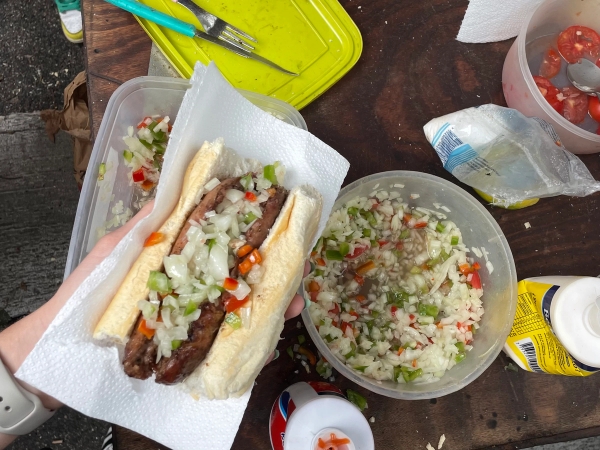
After walking around the entire parade, which hadn't started moving yet, we bought choripan on the street. Choripan is Argentine chorizo, and is served in a baguette, often with chimichurri and a kind of onion and pepper salsa.
Great atmosphere getting food served straight from the grill on the street! There was also the option to buy other food, like burgers and sandwiches.
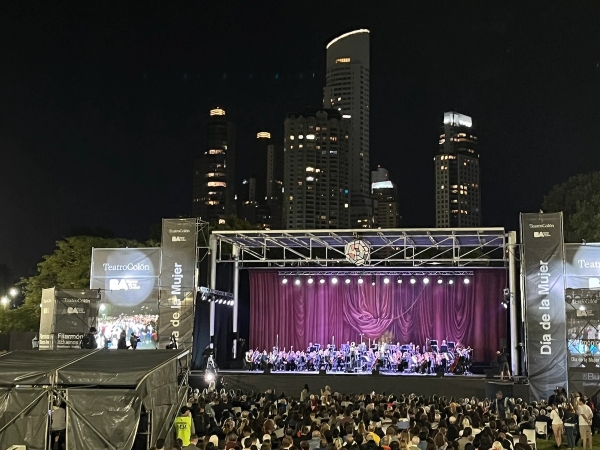
In the evening, there was a free outdoor concert with the city's symphony orchestra at Puerto Madero. It was a very nice experience with many attendees.
After this, it was just a matter of getting on the bus home, tired and happy after a long day.
